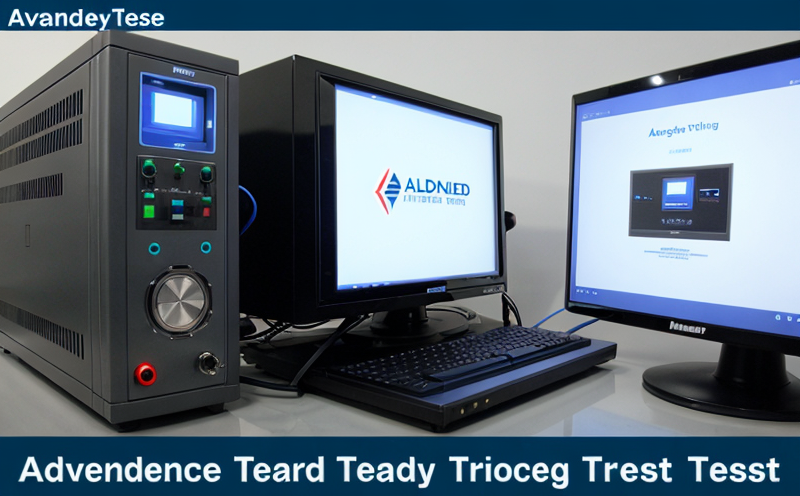JEDEC JEP160 Advanced Reliability for New Semiconductor Processes Testing
The JEDEC JEP160 specification is a critical standard that ensures the reliability of new semiconductor processes. This document provides detailed test procedures to evaluate the durability and performance of semiconductors under various environmental conditions, ensuring they meet stringent quality standards before being released into production.
The testing process outlined in JEP160 involves multiple steps aimed at simulating real-world conditions that may affect the reliability of semiconductors. These tests are essential to ensure that new semiconductor processes can withstand harsh operating environments without failure. The standard covers a wide range of tests, including thermal cycling, humidity stress, and accelerated aging.
Thermal cycling is one of the most important aspects of JEP160 testing. This process simulates the temperature fluctuations that semiconductors may experience in actual use. By subjecting them to rapid changes between high and low temperatures, engineers can identify any weaknesses or potential failure points. The thermal cycling test typically involves exposing the semiconductors to cycles of extreme heat and cold over a specified period.
Humidity stress is another critical component of JEP160 testing. This test evaluates how well the semiconductors perform in humid environments, which can be particularly challenging for electronic components. High humidity can lead to corrosion and other forms of degradation that affect performance. The humidity stress test involves exposing the devices to controlled levels of moisture over an extended period.
Accelerated aging is a third key element of JEP160 testing. This process simulates long-term exposure to normal operating conditions, allowing engineers to predict how semiconductors will age and perform over time. The accelerated aging test typically involves exposing the devices to high temperatures and other stress factors for an extended period.
These tests are not just theoretical exercises but have real-world implications. By following JEP160 guidelines, manufacturers can ensure that their semiconductor products meet or exceed quality standards, leading to increased customer satisfaction and reduced warranty claims. The testing process also helps identify potential issues early in the development cycle, allowing for corrective actions before full-scale production.
The tests outlined in JEP160 are designed to be comprehensive yet practical. They provide a balance between thoroughness and efficiency, ensuring that manufacturers can effectively evaluate their products without unduly increasing costs or delays. The standard also emphasizes the importance of accurate data collection and analysis, providing detailed guidelines for recording test results.
In conclusion, JEP160 is an essential tool for quality managers, compliance officers, R&D engineers, and procurement professionals working in semiconductor manufacturing. By adhering to this specification, manufacturers can ensure that their products meet the highest standards of reliability and performance, leading to improved product quality and customer satisfaction.
Industry Applications
- Consumer Electronics: Ensuring durability in devices like smartphones and tablets.
- Automotive Industry: Testing semiconductors for automotive electronics to withstand harsh conditions.
- Data Centers: Evaluating the reliability of semiconductor components used in data storage and processing systems.
- Medical Devices: Guaranteeing the longevity and performance of medical equipment.
JEP160 testing is particularly important for industries where reliability is paramount. By ensuring that semiconductors meet stringent standards, manufacturers can provide products that are dependable and long-lasting, enhancing overall customer satisfaction. This standard plays a crucial role in maintaining the integrity of electronic components across various sectors.
Customer Impact and Satisfaction
The impact of JEP160 testing on customers is significant. By ensuring that semiconductors meet rigorous reliability standards, manufacturers can provide products that are more durable and longer-lasting. This leads to increased customer satisfaction as users can expect their devices to perform optimally over a longer period.
Customers benefit from the reduced risk of product failure and increased confidence in the quality of the products they purchase. This is especially important for industries where reliability is critical, such as automotive, medical, and aerospace sectors.
In addition to improved customer satisfaction, JEP160 testing also helps manufacturers build a strong reputation for producing high-quality products. By adhering to this standard, companies can differentiate themselves in the market, attracting more customers and generating repeat business.
International Acceptance and Recognition
- American Standards: JEP160 is widely recognized by American standards bodies such as IEEE and ANSI.
- European Standards: The European Committee for Standardization (CEN) has adopted JEP160 as a reference document.
- Asian Standards: Many Asian countries, including Japan and South Korea, have incorporated JEP160 into their national standards.
The global acceptance of JEP160 is evident from its widespread use in various regions. This standard has been adopted by numerous international organizations, ensuring that it remains relevant and applicable across different markets.
The international recognition of JEP160 also contributes to the harmonization of standards worldwide, promoting consistency and compatibility between different regions. This helps manufacturers streamline their testing processes and ensures that products meet global quality benchmarks.





